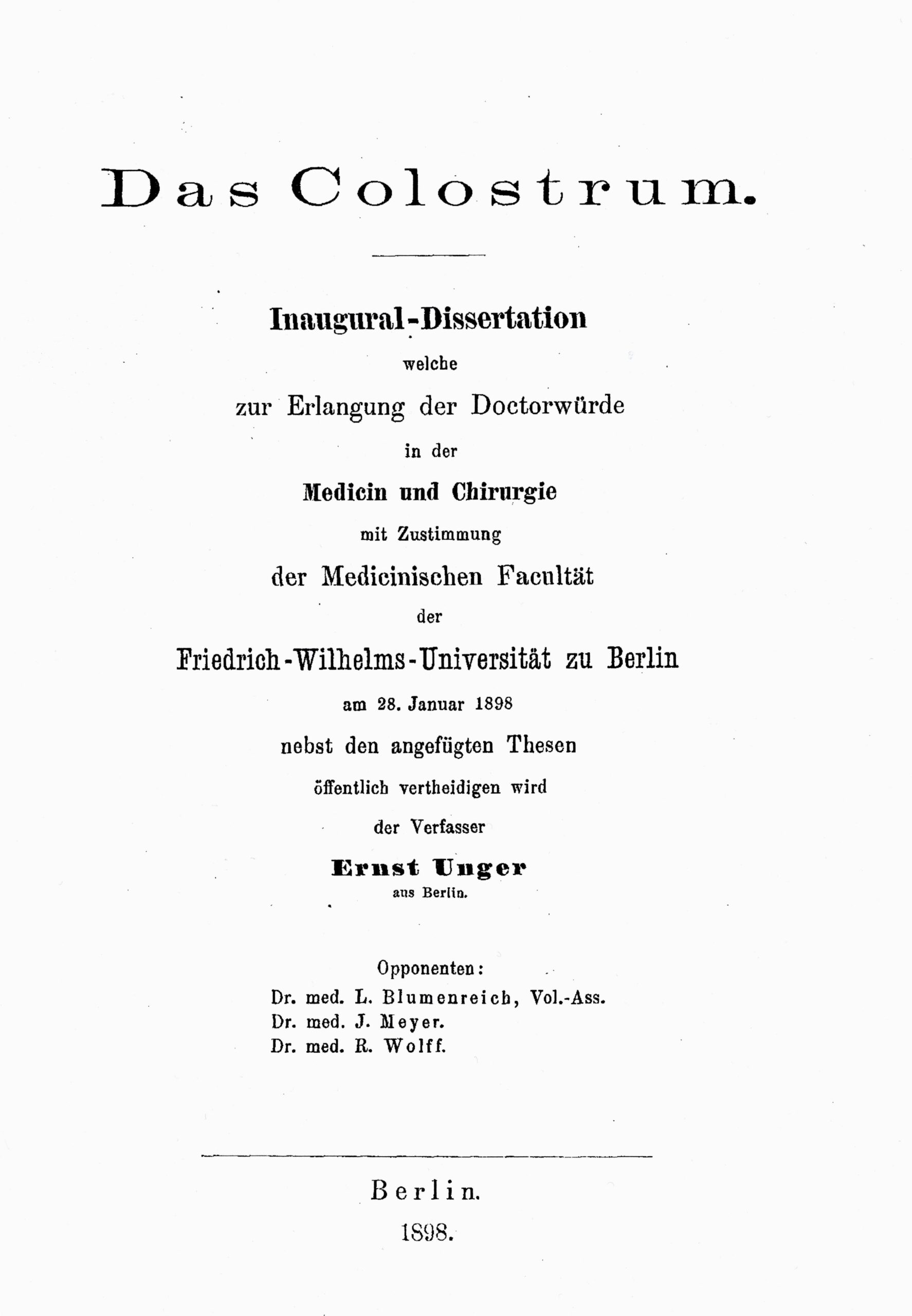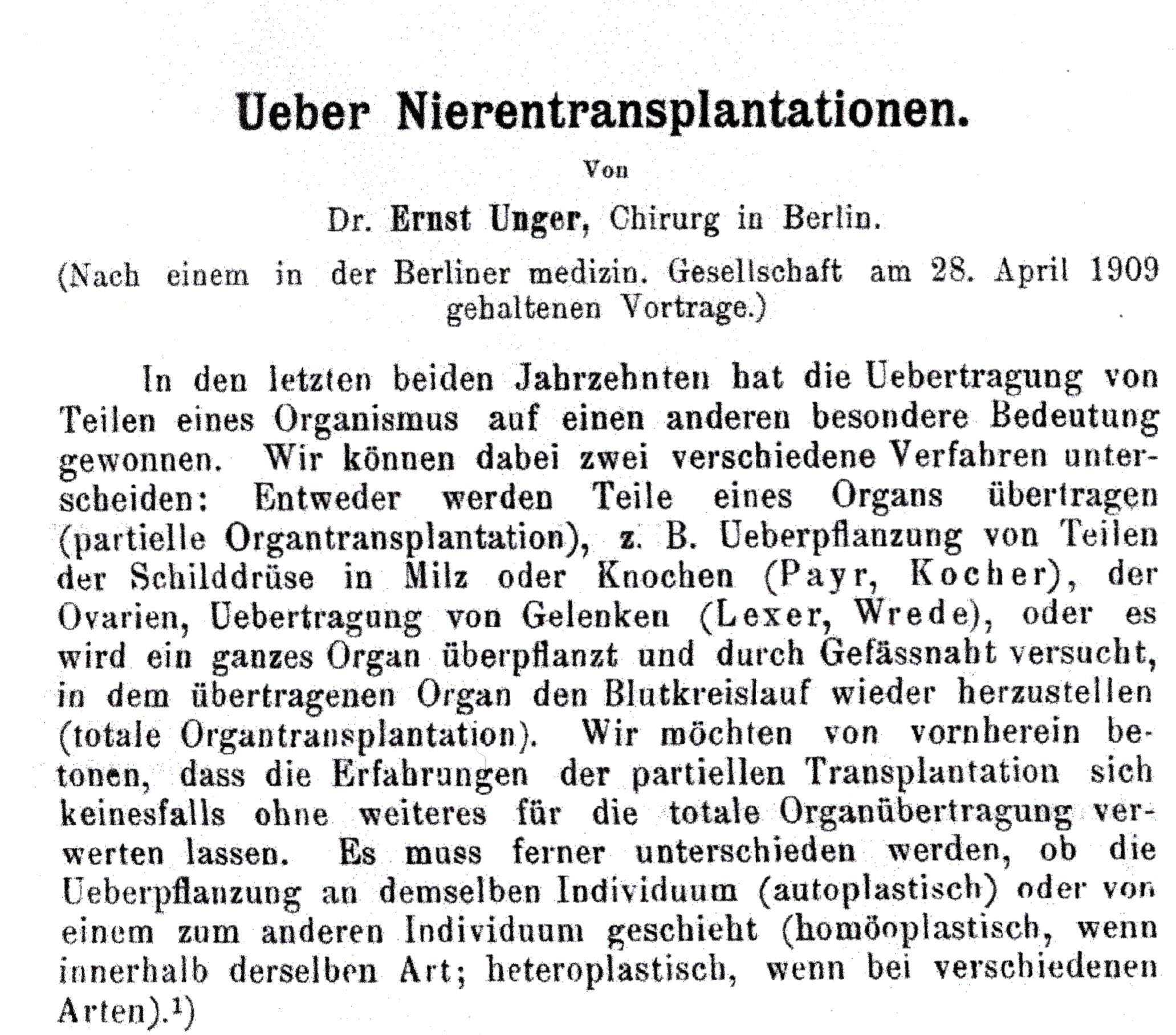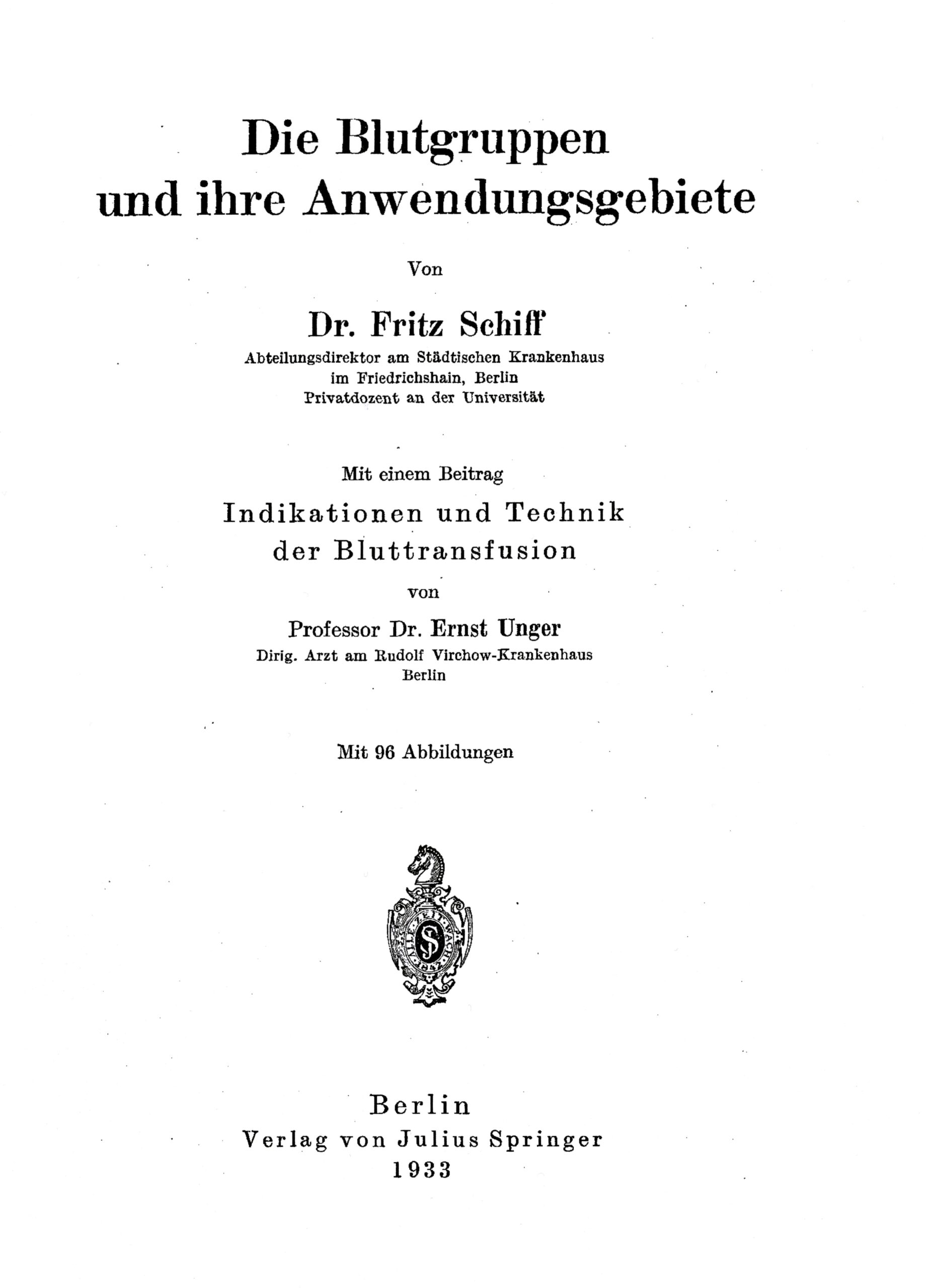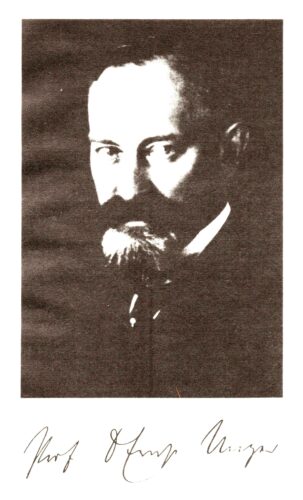Prof. Dr. med. Ernst Unger
- Berlin, 02.04.1875
- Prenzlau, 13.09.1938
- Member since 1929
- Berlin
- Surgeon
Ernst Unger was born in Berlin on 2 April 1875 as the son of the banker Albert Unger and his wife Elise, née Wiesenthal. His mother came from a family of doctors in Berlin. Unger attended the Königlich Joachimsthalsche Gymnasium (royal grammar school Joachimsthal) in today’s Bundesallee from 1884. After graduating from high school in 1892, Unger studied medicine at the Friedrich Wilhelm University in Berlin, interrupted by two stays at the University of Freiburg in 1893 and 1895. He passed the state examination in Berlin in 1896 and received his doctorate in 1898 with the thesis “Das Colostrum”, which he had written under the pathologist Carl Benda.
Education and Places of Work
Unger took up his training and further education with the internist and bacteriologist Albert Fraenkel (first to describe pneumococci) at the department of internal medicine at the Am Urban Municipal Hospital in Berlin in 1899. He moved to Ferdinand Karewski at the Polyclinic for Surgery at the Jewish Hospital in Berlin the same year. Unger worked with Ernst von Bergmann at the Berlin University Surgical Clinic from 1903 to 1905. He then set up as a specialist surgeon and opened a private surgical clinic at Derfflingerstrasse 21 in Berlin-Tiergarten, which was highly modern for the time. Not only Unger, but also Ernst von Bergmann, the surgeon Hans Kehr, the ENT specialist Gustav Kilian and the urologist Paul Rosenstein operated on their private patients here.
Unger was awarded the title professor in 1919. He had been the directing physician of the II Surgical Clinic at the Rudolf Virchow Municipal Hospital in Berlin from 1920.
Unger was a universal surgeon who, in addition to abdominal surgery, devoted himself to kidney transplantation from an early stage. He conducted diverse and numerous animal experiments on kidney transplantation starting in 1903, which were ultimately unsuccessful and failed due to what he himself postulated as a “biochemical barrier”. Unger is considered a pioneer of kidney transplantation in Germany. In addition, he dealt with problems of vascular and nerve suturing, endotracheal insufflation anaesthesia, transthoracic oesophageal surgery, gastrectomy as well as questions of blood transfusion and the organisation of a blood donor service. Also noteworthy are his investigations with intravascular catheters carried out together with Fritz Bleichröder (Berl Klin Wochenschr 1912; 49: 1504-1507).
1933
Ernst Unger was one of the first Berlin doctors to lose his position on the grounds of his affiliation with the Jewish religious community after the National Socialists had come to power. He was dismissed from his position as head physician at the Rudolf Virchow Hospital by the National Socialists in April 1933, and was no longer allowed to enter the clinic. He was forced to sell his private clinic in 1936. Unger was subsequently only allowed to treat Jewish patients.
Unger expressed the increasing disenfranchisement and humiliation of the Jews during the Nazi dictatorship in a letter to his son in August 1938: “And then I ask you to take note of the fact that from 1 January 1939 my name will be Ernst Israel Unger and that I will carry an identification card with the imprint “Jude” and fingerprint with me at all times”.
Ernst Unger died at the Prenzlau district hospital on 13 September 1938 from the serious consequences of a car accident he had suffered on the autobahn near Gramzow in the Uckermark district.
Sources and Further Reading
Sources



